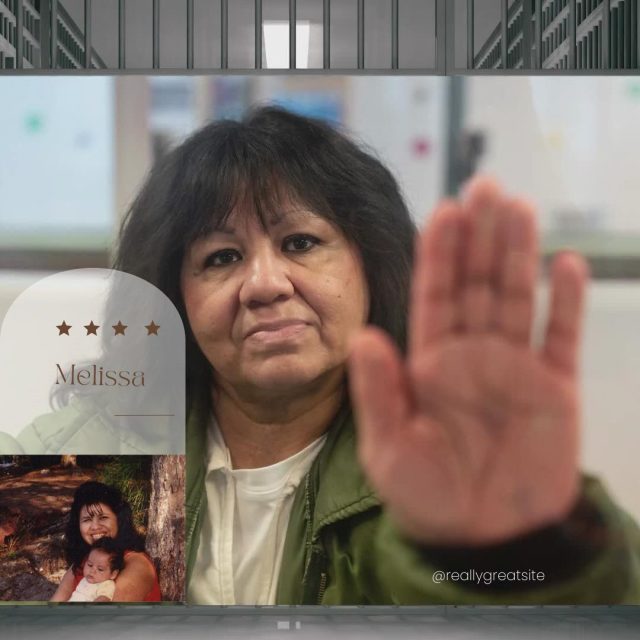Melissa Lucio case is a stark reminder of the potential glitch within the criminal justice system, especially in death penalty cases. With her life hanging in the balance, examining the facts around her situation and the rising evidence saying her innocence is necessary.
Who is Melissa Lucio?
Melissa Lucio, a woman on death row in Texas, has become an indication of a flawed justice system. And raises matters about the use of the death penalty in the United States. This preface provides a glimpse into the seven vital facts about Melissa Lucio’s case that demand our consideration and raise questions about the possibility of her wrongful conviction and approaching execution.
1. Mariah’s death was a pathetic accident, not a murder.
Mariah fell down a flight of stairs while the family was moving homes on Feb. 15, 2007. The child had a mild physical disability that made her shaky while walking and supine to tripping. Two days later, she took a nap and didn’t wake up.
Rather than taking the steps to learn about Melissa Lucio health history and inspect the causes of her injuries, authorities instantly jumped to the results that she had been murdered and, through a bullying inquiry, pressured Ms. Lucio to make a false statement.
Nearly 1 in 3 sinless women were wrongly convicted of prejudiced children or other loved ones in their care and over 70% were unfairly fated of crimes that never took place at all — events that were accidents, deaths by suicide, or factitious— according to data from the National Registry of absolution.
2. Melissa has sustained her innocence for over 14 years.
Ms. Lucio has sustained her innocence on death row for more than 14 years. At the time of her inquiry, Ms. Lucio presumed her innocence more than 100 times, until she was phoney into falsely taking authority for some of Mariah’s injuries by police officers. The inquiry officers refused to hear the truth: that Melissa did not, and would not, ever hurt her children.
3. Melissa was forcefully interrogated by police two hours after her daughter died.
Melissa Lucio’s trial began tragically and unpleasantly. Just two hours after the death of her daughter, she found herself subjected to a forceful police inquiry. This timing lifted questions about the emotional state she was in while being argued, as she was still clarifying the loss of her child. The situation of her interrogation marks the need for careful consideration of her case. Coercive inquiry can lead to false sketches and unjust convictions, adding to the matters surrounding Melissa Lucio’s conviction and the huge miscarriage of justice in her case.
4. False and misleading evidence was presented at Melissa’s trial.
Based on the comments Ms. Lucio was forced to make throughout the protracted interrogation, she was sentenced to death in 2008. The jury was misled into thinking Mariah’s death was a murder when the truth was that she died after a sad unintentional fall, according to new scientific and expert evidence, which disproves Ms Luicio’s conviction.
Dr Gisli Gudjonsson, one of the world’s foremost authorities on false confessions, as well as David Thompson, a police trainer and expert in interrogation techniques, have examined Ms Lucio’s interrogation and conclude that her admissions are “unreliable” and merely a “regurgitation” of the words and information that officers fed her during a highly coercive interrogation process.
5. The state presented no evidence that Melissa abused any of her children.
There was no proof shown by the state that Melissa had mistreated any of her kids. The 12 children of Ms. Lucio never reported that she was abusive toward them, and no caseworkers found evidence of abuse. According to thousands of pages of records from the Child Protection Services. Physical proof of the contrary was lacking.
6. The jury did not hear Melissa’s defence and some of her jurors called for a new trial.
Melissa’s supplemental application also includes a declaration from David Faigman, Chancellor and Dean of the University of California Hastings College of Law. Who served as a Senior Advisor to the President’s Council of Advisors on Science and Technology’s Report. “Forensic Science in Criminal Courts: Ensuring Scientific Validity of Feature-Comparison Methods,” who concludes that “it was an abuse of the trial court’s discretion to permit Ranger Escalon to testify regarding his ability to determine Ms. Lucio’s guilt or innocence by interpreting her facial expressions and demeanour.” (Supp. App. at pp. 6-7. Supp. Exhibit 3 at 2.) Professor Faigman further concludes, “[t]he prejudicial nature of this error was compounded by the fact that the substance of the scientific testimony in question was false as a matter of neuroscientific consensus.” (Supp. App. at p. 7. Supp. Exhibit 3 at p. 2) (emphasis added)
7. There is widespread — and growing — support for amnesty for Melissa Lucio across Texas
To date, over 100 bipartisan Texas lawmakers signed letters urging the Texas Board of Pardons and Paroles to recommend clemency for Melissa. Hundreds of anti-domestic violence/sexual assault organizations and 18 Texas exonerees have voiced support for clemency for Ms. Lucio. More than 130 Baptist, Evangelical and Catholic faith leaders in Texas. Including the executive director of the Hispanic Baptist Convention of Texas. And the director of the Rio Grande Valley Baptist Association, support amnesty for Ms. Lucio. Eighty-three Texas legislators from both sides of the aisle have signed a letter urging the governor. And Texas Board of Pardon and Paroles to grant Ms. Lucio clemency. And 30 groups that work on behalf of the Latinx community in Texas have said they support clemency, too. More are learning about Ms. Lucio’s case and advocating for her each day.







